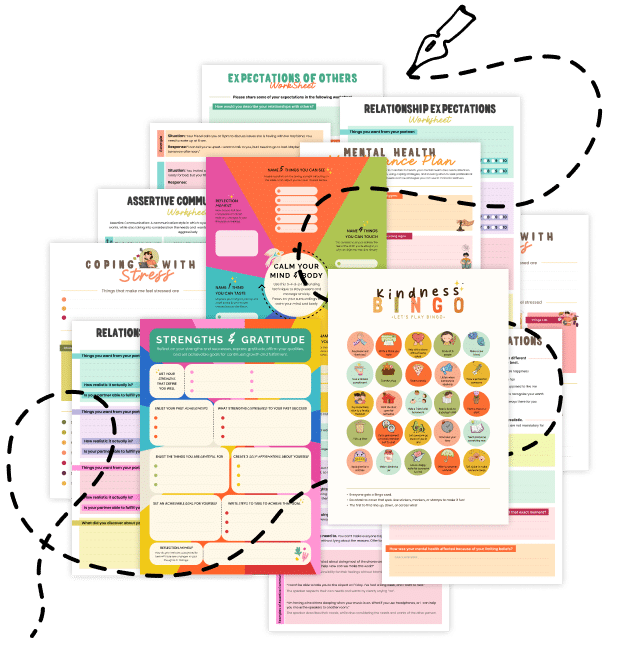20 Things About Self-Compassion Training
Boost your emotional resilience and overall well-being with these 20 insights on Self-Compassion Training—what it is, why it matters, and how to practice this powerful mindset skill.
1. What Is Self-Compassion Training?
Self-Compassion Training involves learning to treat yourself with kindness, understanding, and patience—particularly during challenging moments. It’s about becoming your own ally instead of your harshest critic.
2. The Three Core Components
According to Dr. Kristin Neff, self-compassion has three main elements:
- Self-Kindness: Being gentle rather than self-critical.
- Common Humanity: Recognizing everyone struggles at times.
- Mindfulness: Observing your feelings without judgment or exaggeration.
3. Why It’s Different from Self-Pity
Self-pity can keep you stuck in negative thinking. Self-compassion acknowledges your difficulties without wallowing in them—making space for growth and positive change.
4. How Self-Compassion Training Impacts Mental Health
Research shows that people who practice self-compassion experience lower stress, anxiety, and depression. They’re also more likely to bounce back from setbacks quickly.
5. Linking Self-Compassion Training and Motivation
Contrary to the myth that self-compassion makes you “soft,” it can actually enhance motivation. Encouragement and support—rather than harsh criticism—fuel sustainable, positive action.
6. Role in Emotional Regulation
When you’re self-compassionate, you’re better equipped to handle turbulent emotions. This training helps you recognize when you’re overwhelmed and gives you tools to calm and soothe yourself.
7. Common Self-Critical Traps
Many people default to self-criticism, thinking it will push them to work harder. But constant negative self-talk can erode confidence and mental well-being over time.
8. Practical Exercises
- Loving-Kindness Meditation: Repeating phrases like “May I be happy, may I be healthy.”
- Self-Soothing Touch: Placing a hand on your heart or cheek when you feel upset.
- Compassion Journaling: Writing encouraging letters to yourself.
9. Barriers to Self-Compassion
Some feel that being kind to themselves is “selfish” or that they don’t deserve kindness. Recognizing and challenging these misconceptions is vital to progress.
10. The Power of Mindful Awareness
Mindfulness helps you pause and notice self-critical thoughts. This moment of awareness is what allows you to replace the harsh voice in your head with a more forgiving, understanding one.
11. How It Helps Relationships
When you’re kinder to yourself, you tend to be more empathetic and patient with others. Self-compassion training often leads to healthier, more fulfilling relationships.
12. A Tool for Perfectionists
Perfectionism can lead to burnout and anxiety. Embracing mistakes as part of growth—and treating yourself kindly when they happen—fosters a healthier pursuit of excellence.
13. Stress and Anxiety Reduction
Self-compassion activates your body’s relaxation response, lowering stress hormones. Over time, this can break the cycle of chronic anxiety and tension.
14. Self-Compassion in the Workplace
From meeting deadlines to accepting constructive feedback, practicing self-compassion at work helps maintain mental clarity and resilience, even under high pressure.
15. Cultivating a Growth Mindset
When setbacks occur, self-compassion training encourages you to see them as temporary obstacles rather than permanent failures—supporting a healthier growth mindset.
16. Personalized Practice
Everyone’s journey is different. Some people resonate with guided meditations, while others may prefer journaling or affirmations. Explore various methods to find what feels right for you.
17. Connection to Physical Health
Self-compassion can indirectly improve physical health by reducing stress-related inflammation and boosting behaviors like regular exercise and balanced eating habits.
18. Social Support Amplifies Results
Sharing your self-compassion journey with friends, family, or support groups can reinforce positive changes. Talking openly about progress and setbacks makes the practice more sustainable.
19. Small Steps, Big Impact
You don’t have to overhaul your mindset overnight. Even brief moments of compassion—like pausing to give yourself a mental hug during a tough day—can accumulate into significant progress.
20. Related Topics to Explore
- Mindful Acceptance: Deepen your practice by learning to accept emotions without judgment.
- Self-Talk Restructuring: Transform negative inner dialogue into encouraging self-talk.
- Emotional Granularity: Build nuanced understanding of your feelings to respond more compassionately.
- Cognitive Defusion: Learn techniques to detach from unhelpful thoughts, fostering self-kindness.
Quick Tips to Boost Self-Compassion Training
- Practice Daily Check-Ins: Ask yourself, “How am I feeling right now?” and respond with kindness.
- Use Sticky Notes: Place gentle reminders or affirmations around your home or workspace.
- Avoid Comparisons: Everyone’s path is unique; focus on your progress, not others’.
- Celebrate Small Wins: Acknowledge each step forward, no matter how small—it builds momentum.
- Seek Professional Guidance: Therapists trained in self-compassion techniques can offer personalized strategies.
Self-compassion is more than just being nice to yourself; it’s a transformative approach that fuels resilience, motivation, and emotional health. By consistently practicing self-compassion training, you set the stage for personal growth that benefits not just you, but everyone around you. Share this article with friends, family, or anyone who could use a dose of kindness—and help them discover the empowering impact of being their own best ally!

